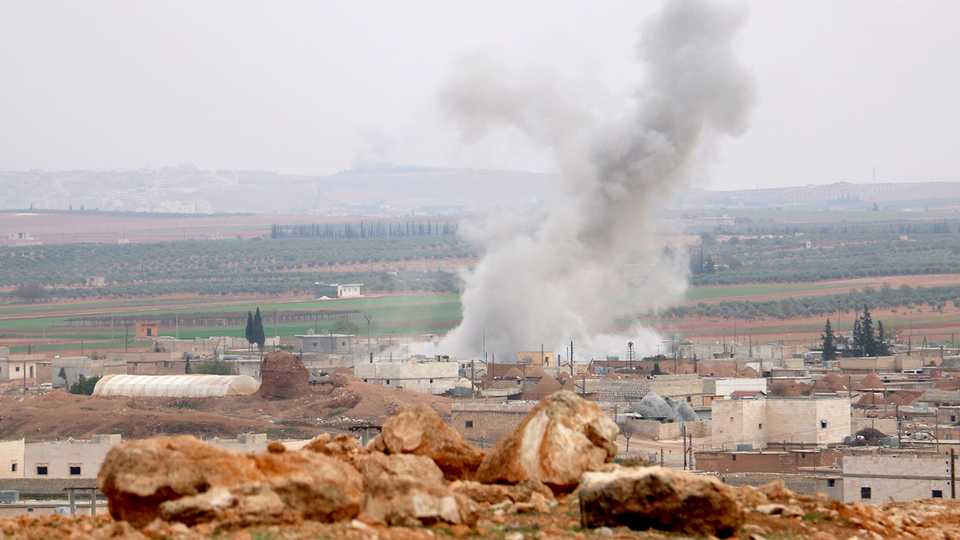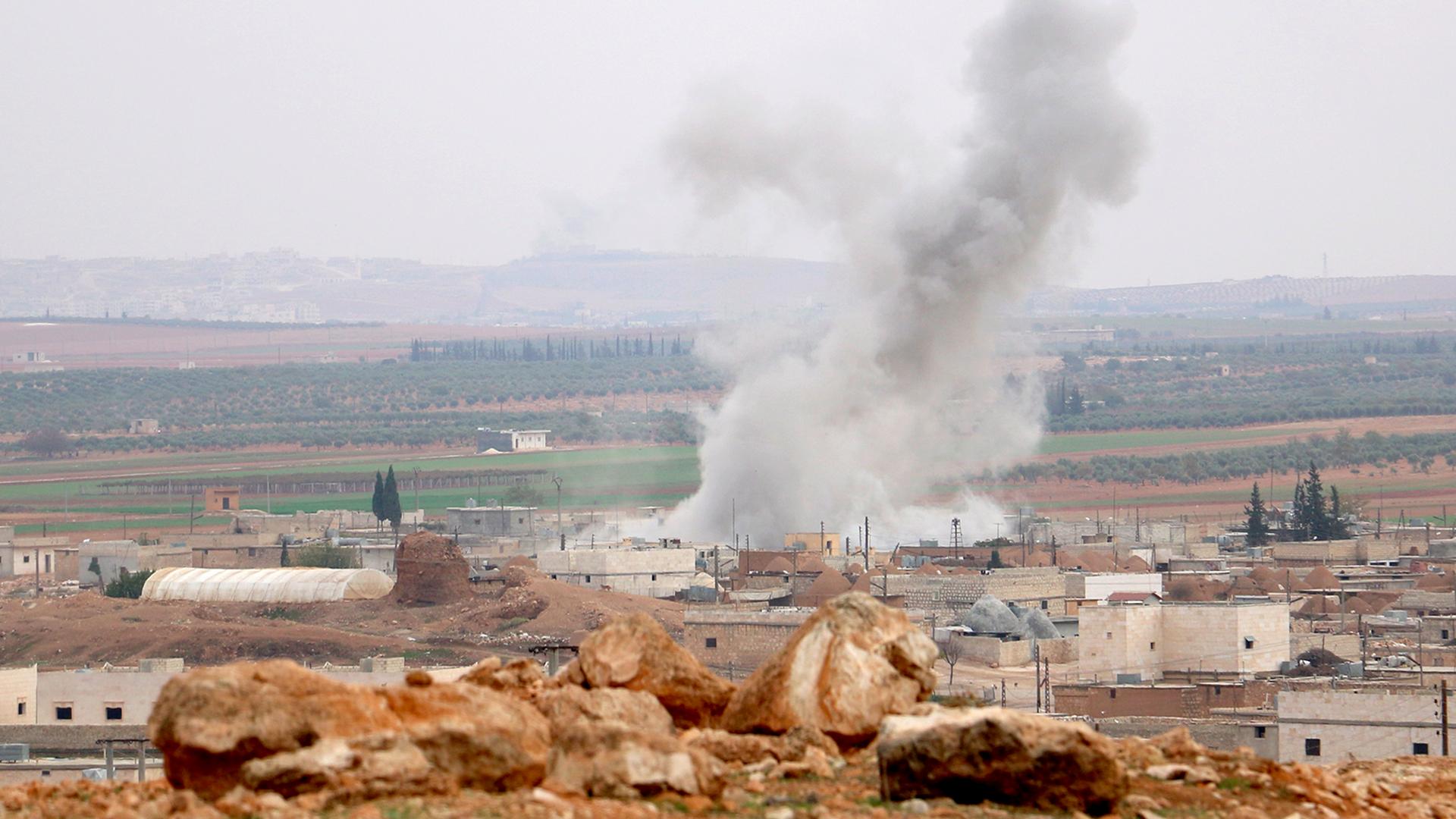
It has been a year since Turkey took a huge stand in Syria and started the Euphrates Shield operation. The ‘Shield’ stopped the PYD from linking their self-claimed cantons in the east and the west and to control all of north Syria along Turkey’s border.
The operation also ended Daesh control on Turkey’s southern borders, hence the decrease in Daesh attacks on Turkey’s border villages. Ten kilometres south of the border were enough for the Turkish army to hinder Daesh activity in those areas. It also helped Turkey to ease Western countries’ criticism of Ankara not fighting enough with Daesh. The rest was aiming at stopping the PYD. And the real battle to stop PYD was held in Al Bab, the southern frontline for the operation.
PYD, which was created in 2003 in Syria, took advantage of the power vacuum in the country during the civil war for the last five years and gained control over the east and west parts of north Syria. The US supported the PYD over their fight against Daesh in the north, a move that angered Turkey and put the two countries’ relations at odds.
That’s because the PYD is the Syrian affiliate of the PKK, a group fighting Turkey for more than 30 years, killing around 40,000, including civilians. PKK is designated as a terrorist organisation by Turkey, the US and the EU.
A critical point west of Manbij: Al Bab
Turkey’s red line for the PYD and its armed wing YPG, was to keep them east of the Euphrates River in northern Syria. But again with military support of the US, YPG defeated Daesh from Manbij in August 2016, which is west of the Euphrates River and neighbouring Al Bab.
Turkey’s Operation Euphrates Shield started ten days later, aiming to settle Turkey-backed Syrian opposition on Turkey’s border, instead of Daesh and YPG. Syrian opposition forces along with the Turkish army went all the way to Al Bab within weeks in a move to stop YPG from moving west of Manbij.

Al Bab operation took more than three months
Al Bab was not only crucial to stop the YPG militants in Manbij, but also for Daesh as their last base in northern Syria. They kept their weapons and their so-called leaders hidden in Al Bab after they withdrew from Jarablus. That’s the reason the operation in this small town took three months of heavy fighting in the 6 month-long operation.
According to official statements by the Turkish army, the operation to surround Al Bab started in the middle of November. By the eighth of December, Turkish army-backed Syrian opposition forces defeated Daesh from around the town and surrounded it on the north, west and the east.
By the eighth of February, the frontline moved to the city centre. The clashes in the city centre lasted for nearly two weeks and on February 24, the operation on Al Bab was finished successfully. Clearing the explosives hidden by escaped Daesh militants took another month.
Fifty Turkish soldiers out of 67 who were killed in the Euphrates Shield Operation died during the difficult operations in and around Al Bab.
“They tell us not to go to Al Bab, but we are obliged to go down there”
Regime and YPG also had their eyes on the town
During the three months of heavy fighting, all eyes were on Al Bab. Speaking of its strategic importance for Turkey and Daesh, we shouldn’t pass Syria’s Bashar al Assad, who wants to keep that strategic road heading to Aleppo. That brings Russia and the US to the scene.
Russia wanted Turkey-backed forces to stop in Al Bab and not to go further south, according to a Russian Defense Ministry statement. That’s why, Russia conducted its first air bombardment south of Al Bab on December 30. Russian fighter jets kept bombing the south for weeks and Syrian regime forces took place after Daesh was defeated, in a move to stop Turkey-backed forces from moving down to Aleppo road. And in February, a lack of coordination between the Russian pilots and Turkish armed forces on the ground lead to the death of three Turkish soldiers under the bombardment by Russian jets.
“Turkey decided to move on Al Bab independently, and what we’d like to do is to continue to work with them to develop a plan where everyone remains focused on Daesh.”
Number of coalition air strikes decreased
The US was seriously concerned its two allies, Turkey and the YPG would clash on the ground.
Turkish President Recep Tayyip Erdogan already mentioned the rejections in October, saying “They tell us not to go to Al Bab, but we are obliged to go down there,” regarding Russia and the US.
The Euphrates Shield operation started with coalition support, as declared by the Turkish army. The US-led coalition conducted air strikes against Daesh targets on the operational area, but it was cut when it came to Al Bab. Starting in the middle of November, there were no coalition air strikes for nearly two months.
It was also told to the reporters a couple of days after Al Bab operation started, by the spokesman for US forces in Iraq and Syria, Air Force Col. John Dorrian:
“This is a decision they’ve made to go into Al Bab, but it’s not one that the coalition has provided strikes in support of. Turkey decided to move on Al Bab independently, and what we’d like to do is to continue to work with them to develop a plan where everyone remains focused on Daesh.”
Dorrian said “everyone,” taking YPG into the game. That was because of YPG’s desire to get in Al Bab, which was not a secret. Before Turkey started the operation on Al Bab, PYD founded the Al Bab Military Council as they did in Manbij and Raqqa. That was a sign of their plans in Al Bab. Turkey ruined their plans, fighting harshly against Daesh in the strategically important small town.
As a result, in Al Bab the already low levels of air support by the US-led coalition was cut off. It started again in January 18, a move was not coordinated with Turkish army, according to Turkish officials. The US-led coalition’s air strikes continued frequently till the end, after they considered the town will be under control of Turkey-backed opposition forces soon.
In the end, the Al Bab operation ended successfully at the end of February. The US-supported YPG was kept in a narrower part of Manbij, compared to the start of the operation. Russia-supported regime was kept in the south of town.
The winner was Turkey, and that lead regime and YPG cooperation around Al Bab. Right after the operation ended, regime forces took the road in the south and marched all the way east to Manbij. In order to prevent Turkish army-backed Syrian opposition from moving towards Manbij, they created such a buffer zone between the YPG and opposition forces. Considering they are backed by Russia, opposition forces stopped.
With the defeat of Daesh and cleaning of its leftovers from Al Bab, Operation Euphrates Shield came to an end.










Discussion about this post